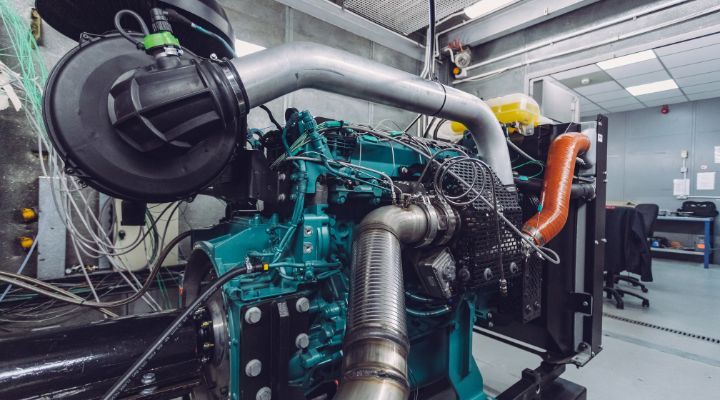Volvo Penta and CMB.TECH have announced a partnership agreement designed to accelerate the development of dual-fuel hydrogen-powered solutions for both on land and at sea applications. This will include joint projects ranging from pilots to small scale industrialization.
The partnership will cover pilot projects and small-scale industrialization of a hydrogen dual-fuel solution for selected customers.
CMB.TECH owns, operates, and designs large marine and industrial applications powered by hydrogen and ammonia – fuels that it both manufactures and supplies to its customers. Volvo Penta is a global manufacturer of engines and complete power systems for boats, vessels, and industrial applications. The companies have worked together in pilot projects since 2017, successfully adapting Volvo Penta engines to run as a dual-fuel hydrogen and diesel solution via the conversion kit provided by CMB.TECH.
The collaboration will establish dual-fuel hydrogen technology as a low-carbon interim solution before suitable zero-emissions alternatives become viable.
“From the initial dual-fuel technology projects we have seen reductions of CO2 emissions up to 80%,” said Roy Campe, chief technology officer at CMB.TECH, adding, “It is clear that the energy transition is a major challenge in many types of applications. With the dual-fuel technology we have been developing over the last few years, we can provide a cost-effective and robust solution for a variety of applications. We think there is huge potential in this solution for customers, both on land and at sea.”
The dual-fuel solution’s main advantage is that it will reduce the emissions of greenhouse gases. If hydrogen is not available, the application continues to run on traditional fuel.
I believe that this dual-fuel approach will appeal to many of our customers by its ease of installation, maintenance, and use. In addition, it will help accelerate our customers’ transition to more sustainable operations,” said Heléne Mellquist, president of Volvo Penta, who added, “There is no ‘one-solution-fits-all’ answer, which is why Volvo Penta is investing heavily in exploring a wide range of sustainable and bridging technologies – such as hybridization, electric drivelines, fuel cells and alternative fuels for combustion engines.”
The design and testing of the hydrogen-injection system will take place at CMB.TECH’s Technology and Development Centre in Brentwood, UK. Here, Volvo Penta engines will be tested to optimize the hydrogen-diesel injection strategy.
“The simplicity of the dual fuel technology allows a quick introduction into many applications. The potential to decarbonize with green hydrogen is huge, but many applications require a fallback scenario of traditional fuel to maintain a viable business,” said Campe.




